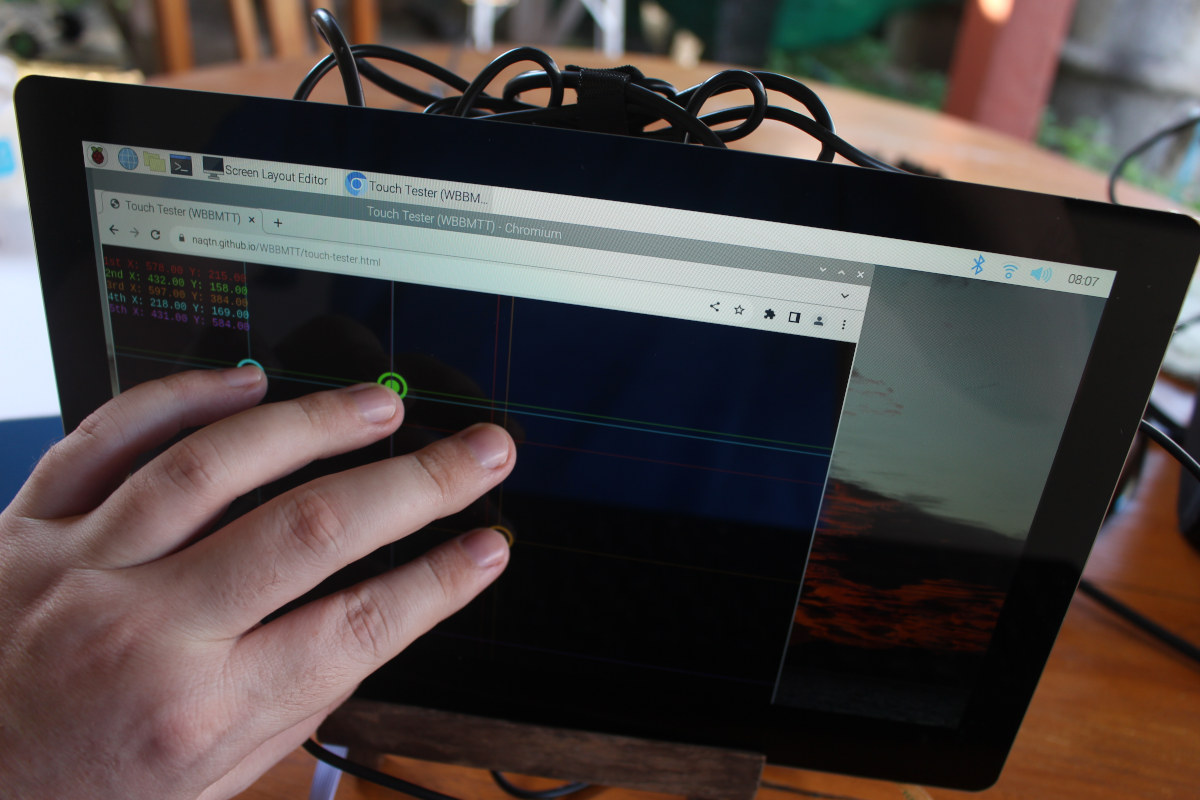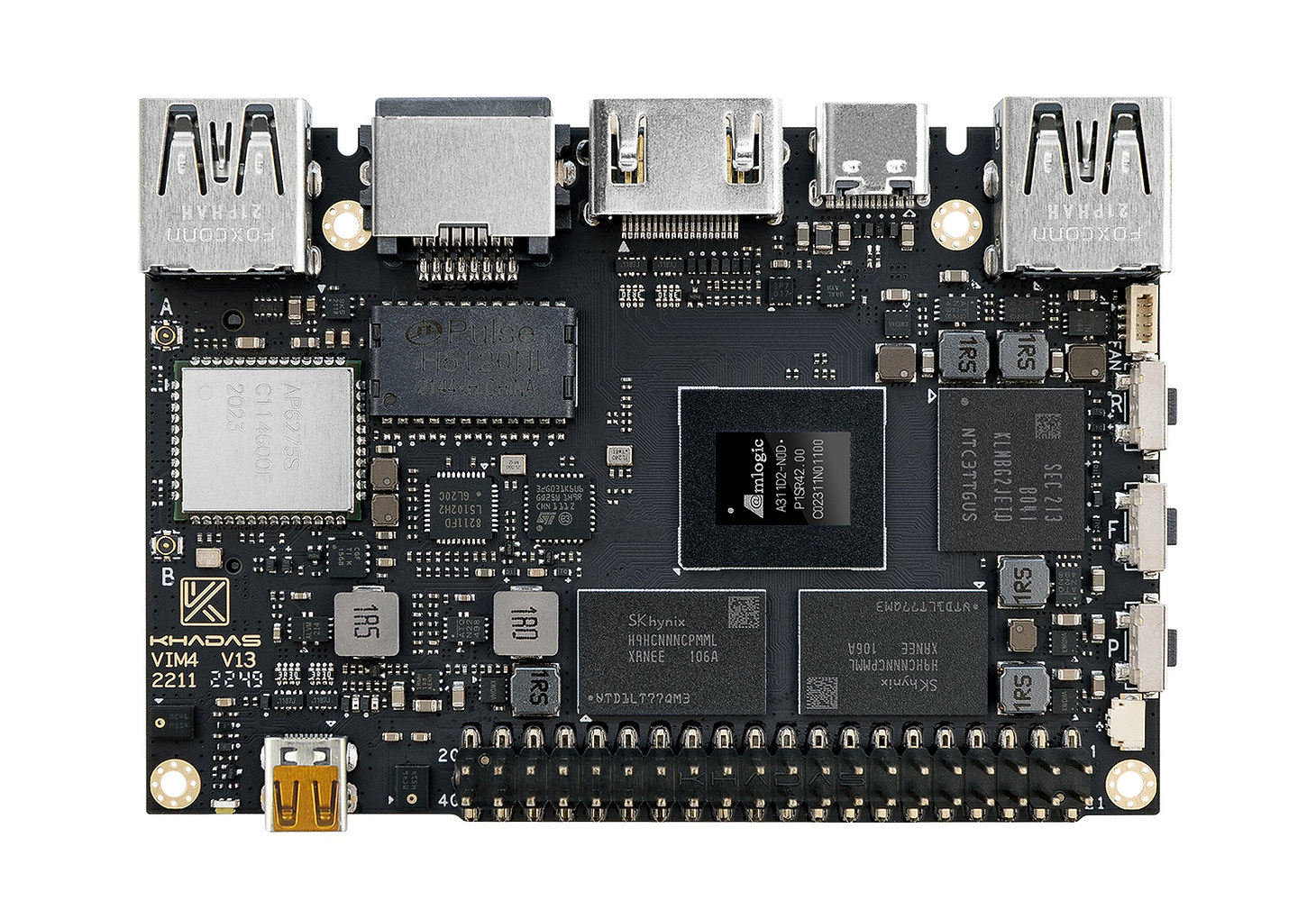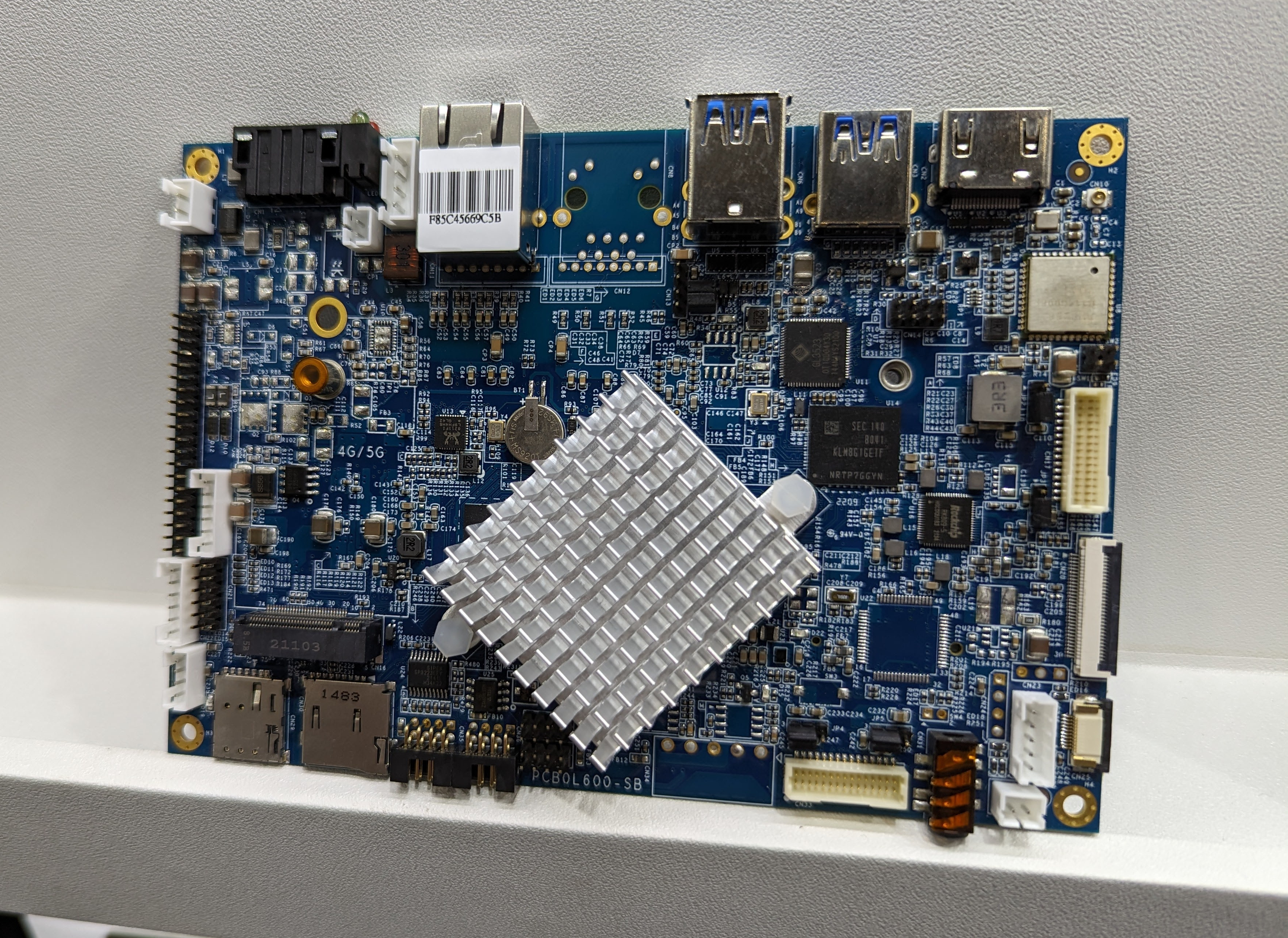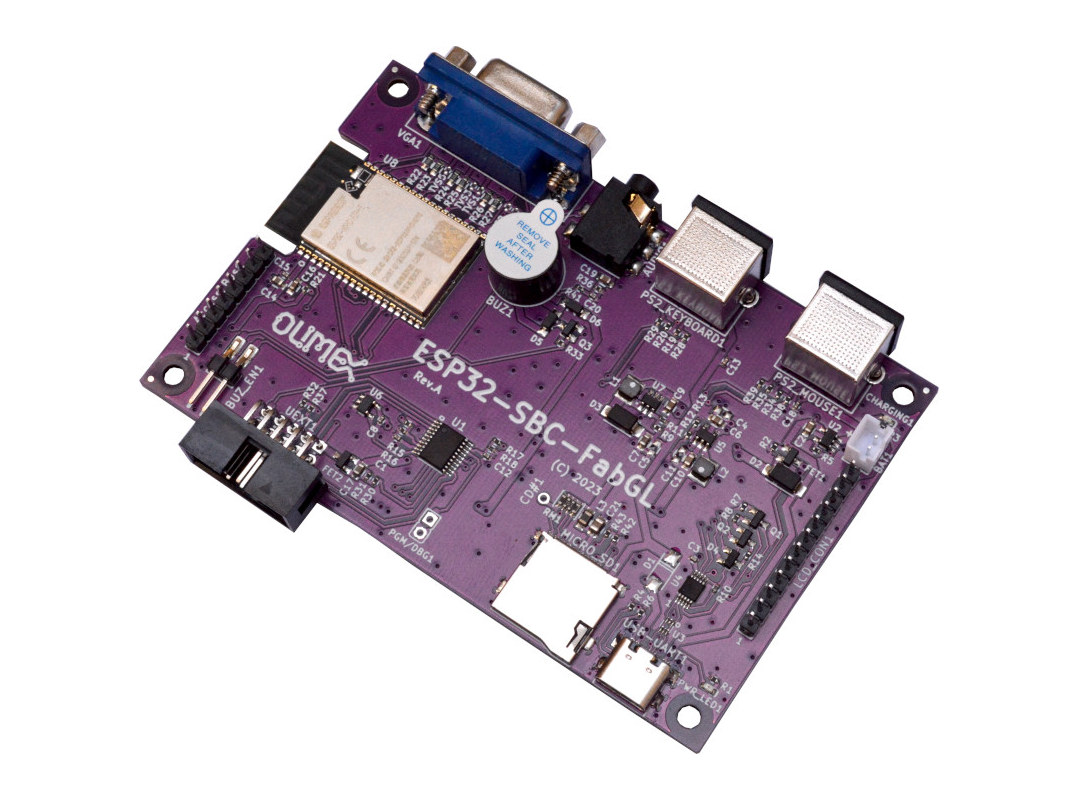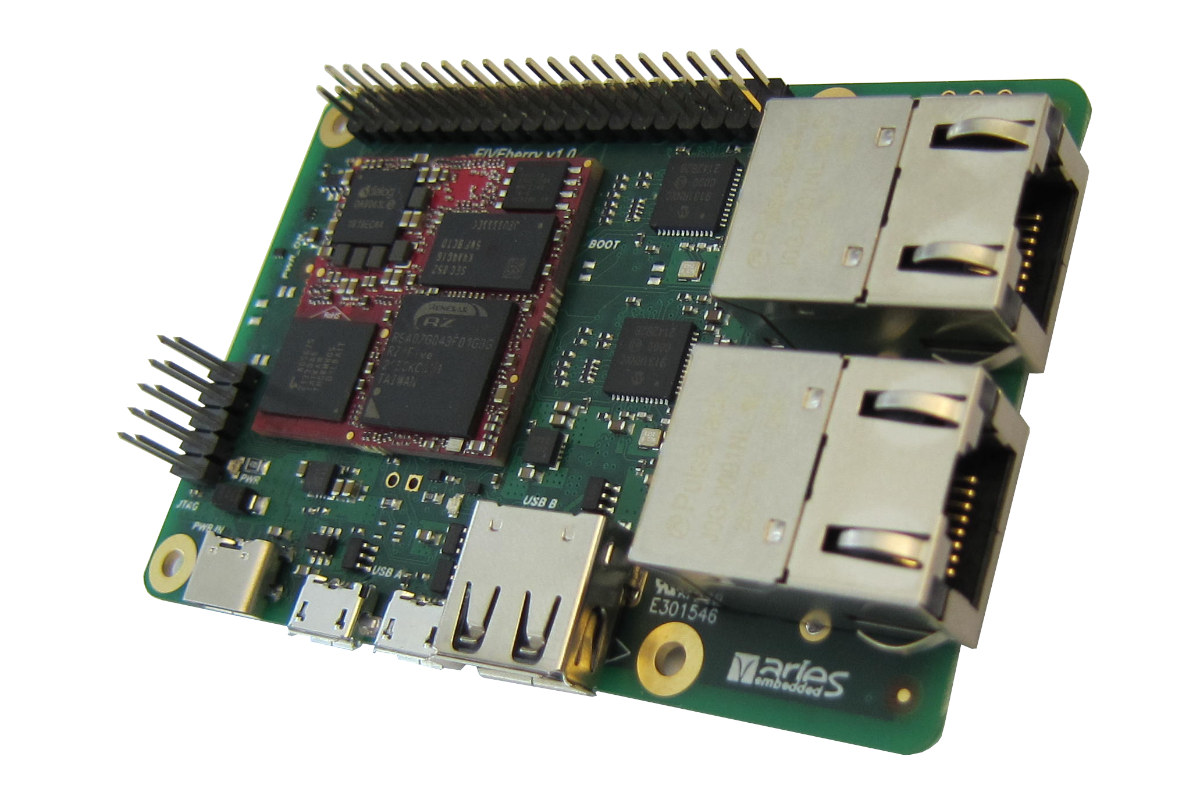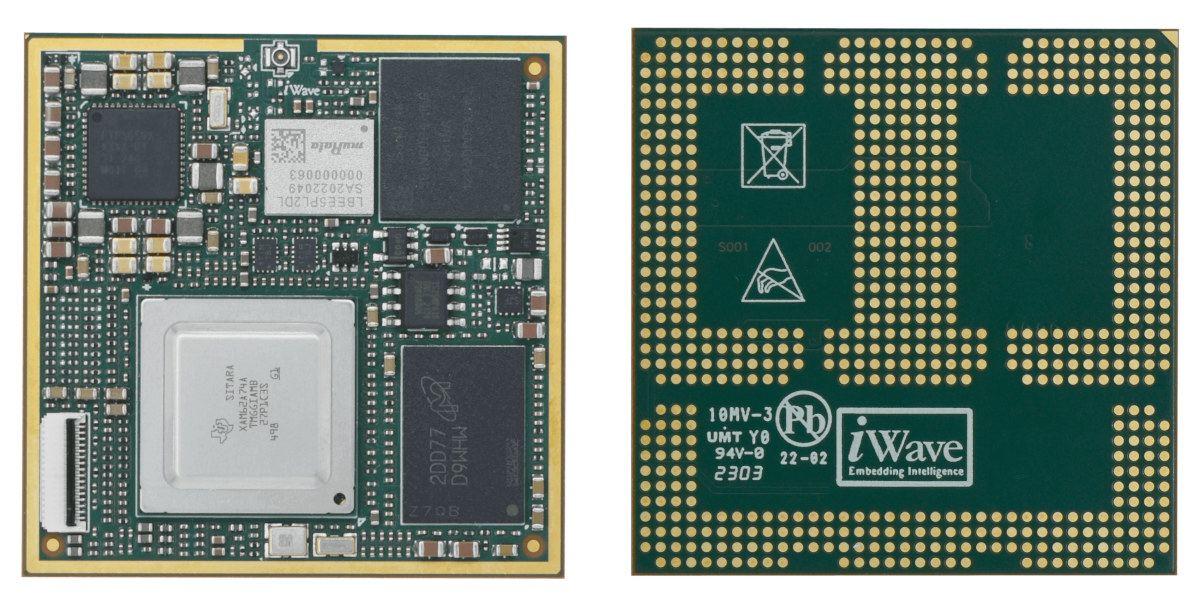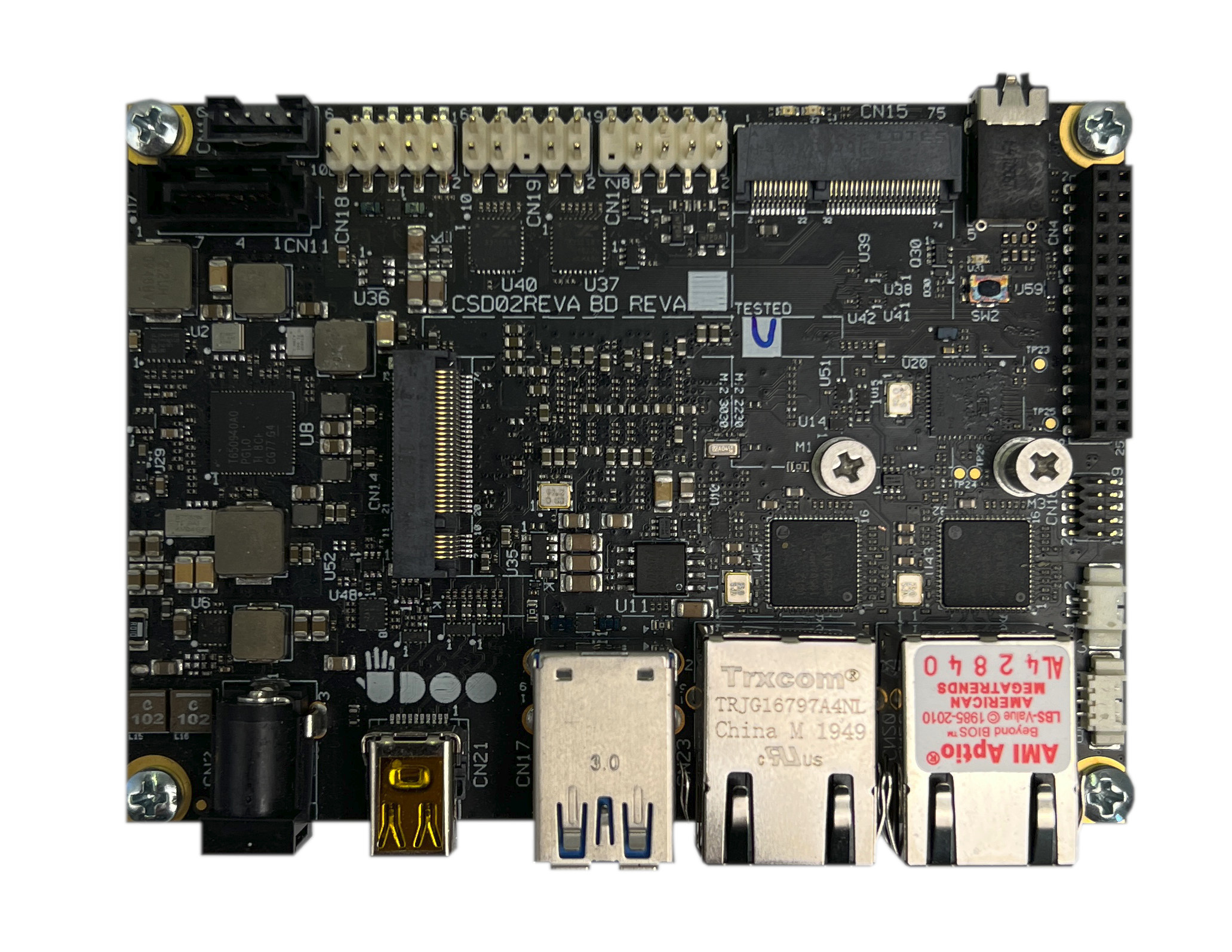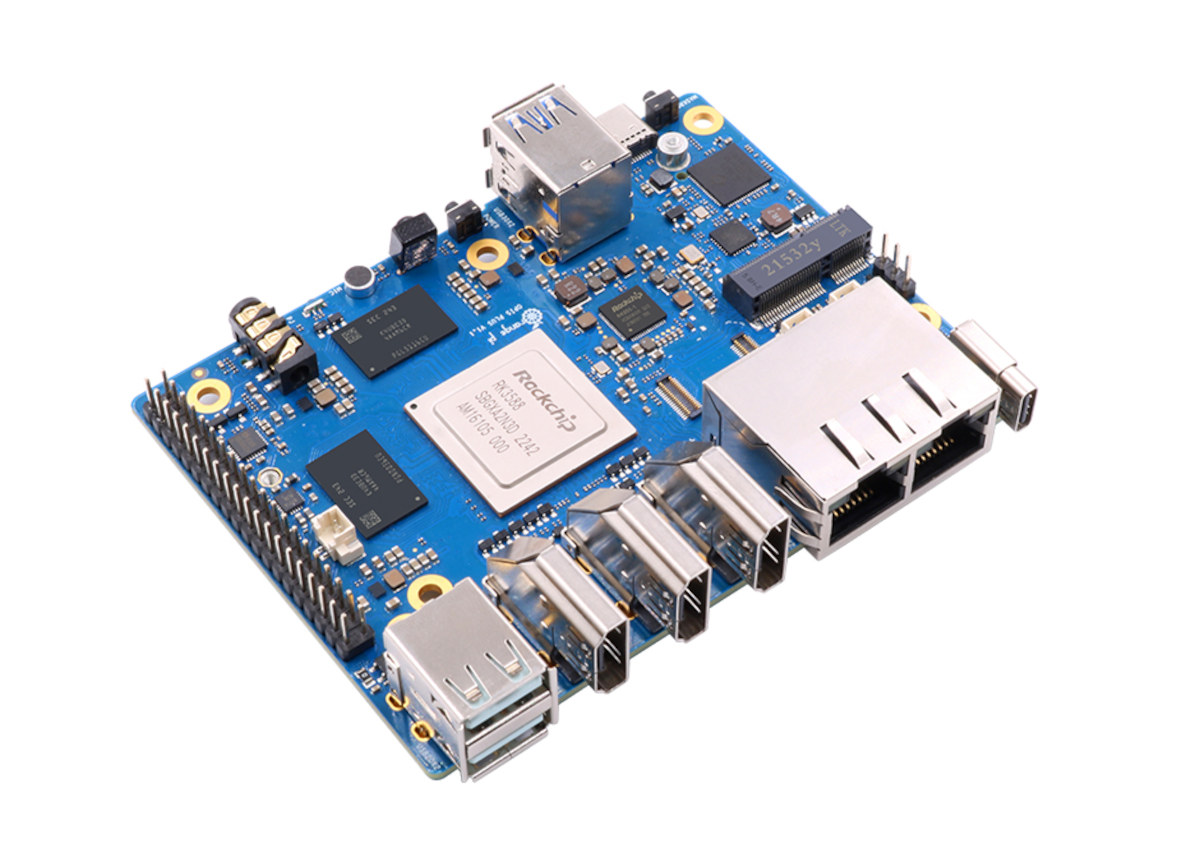CrowVision is an 11.6-inch IPS capacitive touchscreen display with 1366×768 resolution that is designed to work not only with the Raspberry Pi but most single board computers with mounting holes within a 100 x 80 mm rectangle. Elecrow sent me a sample so I’ll try it out with a Raspberry Pi, a Windows 11 mini PC, and a Ubuntu 22.04 laptop to make sure it works well with those operating systems. CrowVision unboxing The packages include the display module itself, a 12V/2A power adapter, USB Type-C and micro USB cables, an HDMI to mini HDMI cable, a micro HDMI to mini HDMI cable, two “ribbons” for cable management, a screwdriver, an OSD control board with five keys, and a user manual. The display does not come with an enclosure, so it’s better suited for DIY projects where users design their own enclosure or mounting solution. The control board is based […]
Khadas VIM4 Amlogic A311D2 SBC gets 3.2 TOPS NPU
First introduced in 2022, the Khadas VIM4 SBC will now sell with an Amlogic A311D2-N0D Cortex-A73/A53 processor equipped with a 3.2 TOPS NPU, and the version without AI accelerator will be phased out. I reviewed the Khadas VIM4 with both Android 11 and Ubuntu 22.04 last year, and really liked the user experience notably thanks to the OOWOW system that makes it really easy to try different operating systems downloaded from Khadas servers, although some features like support for GPU acceleration still needed to be worked on at the time. One thing missing compared to the previous generation Khadas VIM3 SBC was an on-chip NPU to accelerate AI workloads, and the latest revision of the Amlogic A311D2 processor (with N0D suffix) fixes that on the Khadas VIM4. “Khadas VIM4 with NPU” specifications: SoC – Amlogic A311D2-N0D octa-core processor with 4x Arm Cortex-A73 cores @ up to 2.2 GHz and 4x […]
ECS RK3568-IS 3.5-inch SBC with Rockchip RK3568 SoC showcased at COMPUTEX 2023
ECS is better known for its LIVA mini PCs and x86 motherboards, but ECSIPC unveiled a 3.5-inch SBC powered by Rockchip RK3568 Arm SoC at Embedded World 2023. However, when I asked for photos or detailed specifications at the time, I was told by a company representative no further details were available. But we now have more information as the company is showcasing the RK3568-IS 3.5-inch SBC at COMPUTEX 2023, and I received some photos from their booth. ECS RK3568-IS specifications: SoC – Rockchip RK3568 quad-core Arm Cortex-A55 @ up to 2.0 GHz with ARM Mali-G52 2EE GPU with support for OpenGL ES 1.1/2.0/3.2. OpenCL 2.0. Vulkan 1.1, 0.8 TOPS NPU System Memory – 2GB, 4GB, or 8GB DDR3 or LPDDR4X Storage 8GB or 32GB eMMC flash M.2 socket for 2280 NVMe SSD MicroSD card slot Display HDMI 2.0 output eDP 1.3 LVDS or MIPI DSI interface I2C capacitive touch […]
Olimex ESP32-SBC-FabGL board runs DOS, offers VGA , PS/2 keyboard and mouse connectors
Olimex ESP32-SBC-FabGL is an ESP32 single board computer that can serve as the brain of a retro computer with a VGA port, a 3.5mm audio jack, and two PS/2 ports for a keyboard and mouse that are handled by the open-source FabGL graphics library. The board also comes with a microSD card slot, a buzzer, and various expansion interfaces, and can be powered via its USB port or a LiPo battery. FabGL implements several emulators including an Intel 8080 CPU emulator that allows the system to run various versions of DOS among other things. ESP32-SBC-FabGL specifications: Wireless module – ESP32-WROVER dual-core WiFi and Bluetooth module with 4MB flash, 8MB PSRAM Storage – MicroSD card slot Display – VGA connector, 12-pin LCD HAT connector to enable handheld designs Audio – 3.5mm audio jack, built-in buzzer USB – 1x USB-C port for power and programming User inputs – PS2 keyboard connector, PS2 […]
ARIES FIVEberry – A Community RISC-V SBC powered by Renesas RZ/Five processor
ARIES Embedded has unveiled the FIVEberry 64-bit RISC-V community board for fast prototyping fitted with an OSM-compatible MSRZFive system-in-package (SiP) powered by a 1GHz Renesas RZ/Five microprocessor. The board is equipped with a module with 512 DDR4, a 128MBit SPI NOR flash, a microSD card on the bottom of the board, two Gigabit Ethernet ports, two USB 2.0 ports, a micro USB port for serial console, and a JTAG header for further debugging, as well as a 40-pin GPIO header for expansion. FIVEberry specifications: SoM – ARIES Embedded MSRZFive-A0A system-on-module SoC – Renesas RZ/Five R9A07G043F01GBG single-core RISC-V AX45MP processor @ to 1.0 GHz System Memory – 512MB DDR4 RAM Storage – 128Mbit SPI NOR flash 332 contacts as per OSM Size-S specifications Storage – MicroSD card slot Networking – 2x Gigabit Ethernet ports USB – 1x USB 2.0 host port, 1x micro USB 2.0 OTG port Expansion – 40-pin GPIO […]
iW-RainboW-G55M is an OSM-LF compliant module based on TI AM62A Cortex-A53 processor
iWave Systems iW-RainboW-G55M is an OSM Size L compliant system-on-module based on Texas Instruments AM62A single to quad-core Cortex-A53 processor with up to 8GB RAM, 128GB eMMC flash, and a wireless module with WiFi 6, Bluetooth 5.2, and 802.15.4 radios. The iW-RainboW-G55M can leverage the vision processing and deep learning accelerator and the Arm Cortex-R5F real-time cores for control and device management found in the AM62A processor, as well as its display and camera interfaces, peripheral and networking options, to develop products for “man-machine applications at the edge”. iW-RainboW-G55M SoM specifications: SoC – Texas Instruments AM62A SoC (AM62A3, AM62A3-Q1, AM62A7, or AM62A7-Q1) Application processor – Up to four Arm Cortex- A53 cores @ 1.4GHz Real-time cores 1x Cortex-R5F @ 800MHz (MPU Channel with FFI) 1x Cortex-R5F @ 800MHz to support Device Management C7xV-256 Deep Learning Accelerator up to 2 TOPS System Memory – 2GB (default) to 8GB LPDDR4 RAM Storage […]
UDOO VISION SBC with Intel Atom x5-E3940 or x7-E3950 CPU offers Arduino Leonardo compatibility
UDOO VISION single board computer is powered by either an Intel Atom x5-E3940 or x7-E3950 Apollo Lake processor and features the same Microchip ATmega32U4 8-bit AVR microcontroller found in the Arduino Leonardo board to control GPIOs. Two versions of the Pico-ITX SBC are available: the X5 with an Atom x5 processor, 4GB RAM, 32GB eMMC flash, and the X7 with an Atom x7 processor, 8GB RAM, and 64GB eMMC flash. Both come with miniDP++ and eDP vision interfaces, two Gigabit Ethernet ports, USB ports, M.2 sockets for expansion, and a 26-pin header with the same signals as in the Arduino Leonardo board. UDOO VISION specifications: SoC UDOO VISION X5 – Intel Atom x5-E3940 quad-core Apollo Lake processor @ 1.6 / 1.8 GHz (Turbo) with 12EU Intel HD Graphics 500 series; 9.5W TDP UDOO VISION X7 – Intel Atom x7-E3950 quad-core Apollo Lake processor @ 1.6 / 2.0 GHz (Turbo) with […]
Orange Pi 5 Plus SBC switches to Rockchip RK3588 SoC, brings dual HDMI 2.1, dual 2.5GbE, M.2 PCIe sockets
Orange Pi 5 Plus is the first Rockchip RK3588 SBC from the company and succeeds the cheaper Rockchip RK3588S-based Orange Pi 5 and Orange Pi 5B single board computers that had a more limited number of high-end interfaces. Switching to the I/O rich RK3588 processor allowed Orange Pi to add two 2.5GbE networking interfaces, support for NVMe SSD storage up to 2,000 MB/s, up to four display interfaces with two HDMI 2.1 ports, MIPI DSI and USB-C with DisplayPort Alt. mode, as well as an extra M.2 socket for optional WiFi 6 and Bluetooth connectivity. Orange Pi 5 Plus specifications: SoC – Rockchip RK3588 CPU – Octa-core processor with 4x Cortex-A76 cores @ up to 2.4 GHz, 4x Cortex-A55 cores @ up to 1.8 GHz Arm Mali-G610 MP4 GPU with support for OpenGL ES1.1/2.0/3.2, OpenCL 2.2, and Vulkan 1.2 6 TOPS AI accelerator with support for INT4/INT8/INT16/FP16 mixed operation VPU […]


